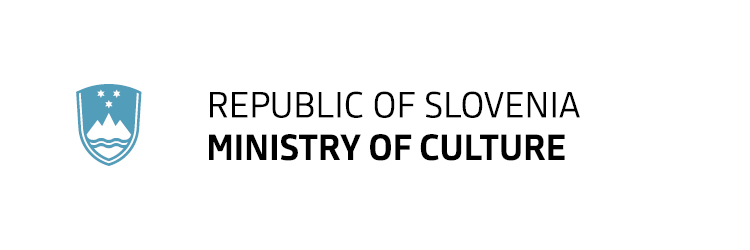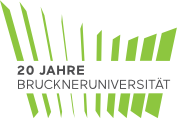
CMS guest 2024
Tilen Lebar
4.11.2024, Sonic Lab
ABPU Linz
16.00 CMS invited lecture #48 - Liminality
18.00 CMS Gesprächskonzert #24 - concert installation LĪMEN VIII
curated by Andreas Weixler
flyer
 © Jorieke de Vet
© Jorieke de Vet
Tilen Lebar
is a Slovene-Dutch composer, improviser and saxophonist.
His work is circulating and creating a unique connection between
memory and the resonance of different acoustic spaces. Within the
last decade, he developed a specific extended vocabulary for
saxophone, electronics and other instruments that intrigue him
personally and aim to push the boundaries of what is yet known,
extend the possibilities of a conventional instrument and create
pieces that create unforgettable experiences.
Tilens' sonic vocabulary besides improvisation duos with Guus
Janssen, Szilard Benes and Domen Gnezda, includes sound art, sound
installations, experimental operas, orchestral pieces, large
ensemble works, electroacoustic performances and many instrumental
pieces that were performed by Christoph Grund, Sae Lee, Luka Juhart,
Matej Šarc, Anja Clift and Valentina Štrucelj among others;
ensembles as Asamisimasa, ensemble Oerknal, Slagwerk Den Haag,
Ensemble Contrechamps, Concept Store Quartet; institutions as
Experimental studio of SWR Freiburg, The Residentie Orkest, Orkest
de Ereprijs, RKST21, Dutch National Opera & Ballet and
conductors such as Clark Rundell, Andrew Hilary Grams and Gregory
Charette.
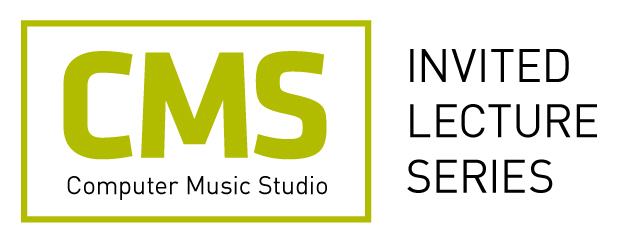
16.00 CMS invited lecture #48 - Liminality
Limen & Liminality
The lecture intends to present a cycle of works
by Limen in its initial thought inspired by anthropologist
Arnold van Gennep. We will look into the phenomenon of liminal
spaces (as part of urban and architectural development) and the
phenomena of anemoia and kenopsia that define
the psychological and psychophysiological responses of the
individuals intertwined with the liminal spaces. Furthermore, we
will draw a relation between the memory response and consolidation
to the perception of the transitional stage of the liminal duration
which is in the theory of A. van Gennep structured into three parts
(pre-liminal, liminal, post-liminal).
We will focus on the second part – the liminal stage itself which is
perceived differently within the variety of cultures and could be
effectively incorporated into the compositional practice where the
theory of informational consolidation becomes limited, the sonic
environment becomes a spatialized object, spatialization represents
a mystical symbolism and the transitional material.

18.00 CMS Gesprächskonzert #24 - concert
installation LĪMEN VIII
An installation in a concert setting intends to present a spectral
mutation of the sonic material that initially reveals the sound of
extensive improvisations with soprano sax, english horn, piano,
electric guitar. An ongoing cycle of works inspired by
anthropologist Arnold van Gennep, the phenomenon of liminal spaces
and the phenomena of anemoia and kenopsia.
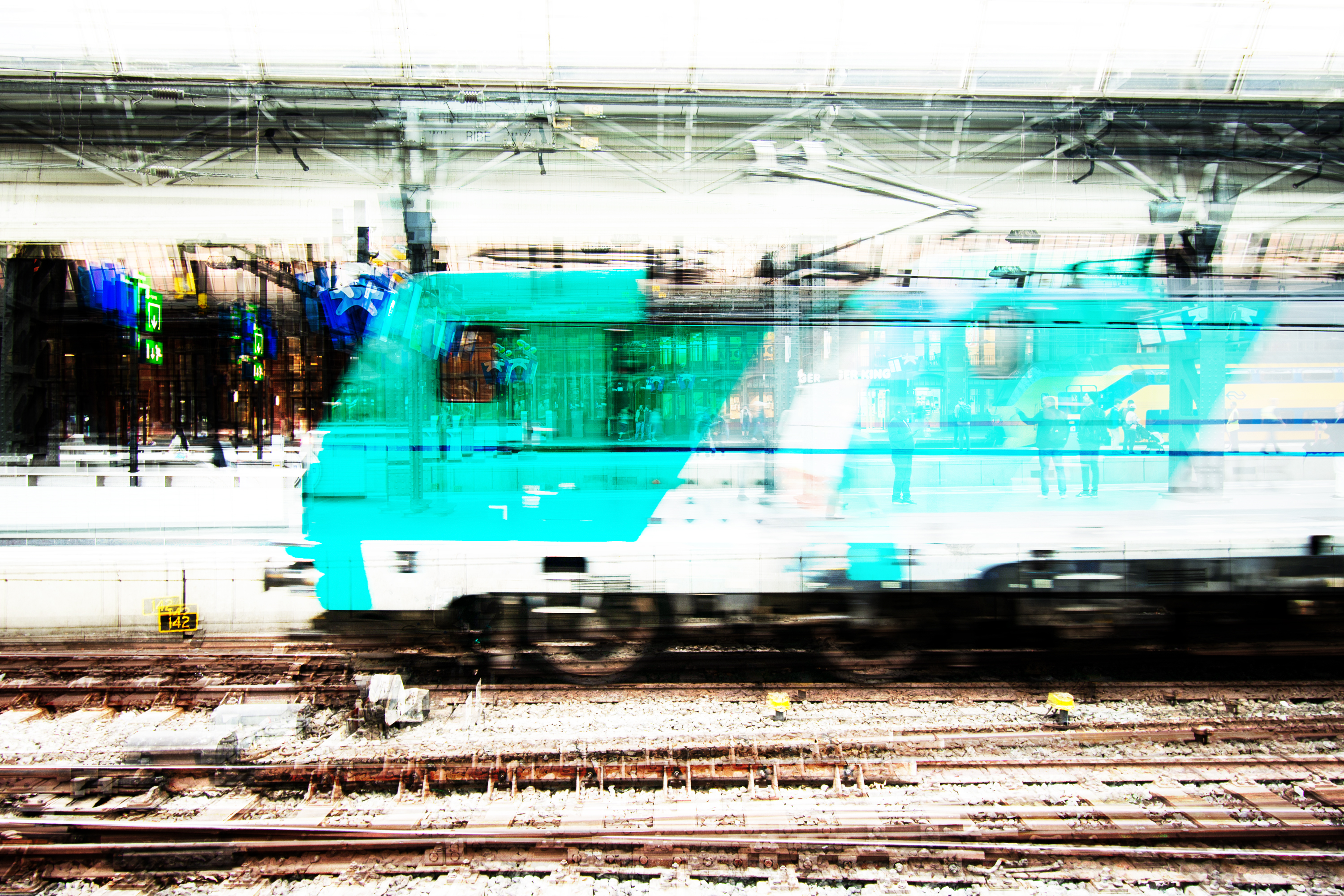 © Maria_Nikolic
© Maria_Nikolic
LĪMEN VIII
Tilen Lebar - sopran sax
Maria Nikolic - english horn
Se-Lien Chuang - piano, voice
Andreas Weixler - electric guitar
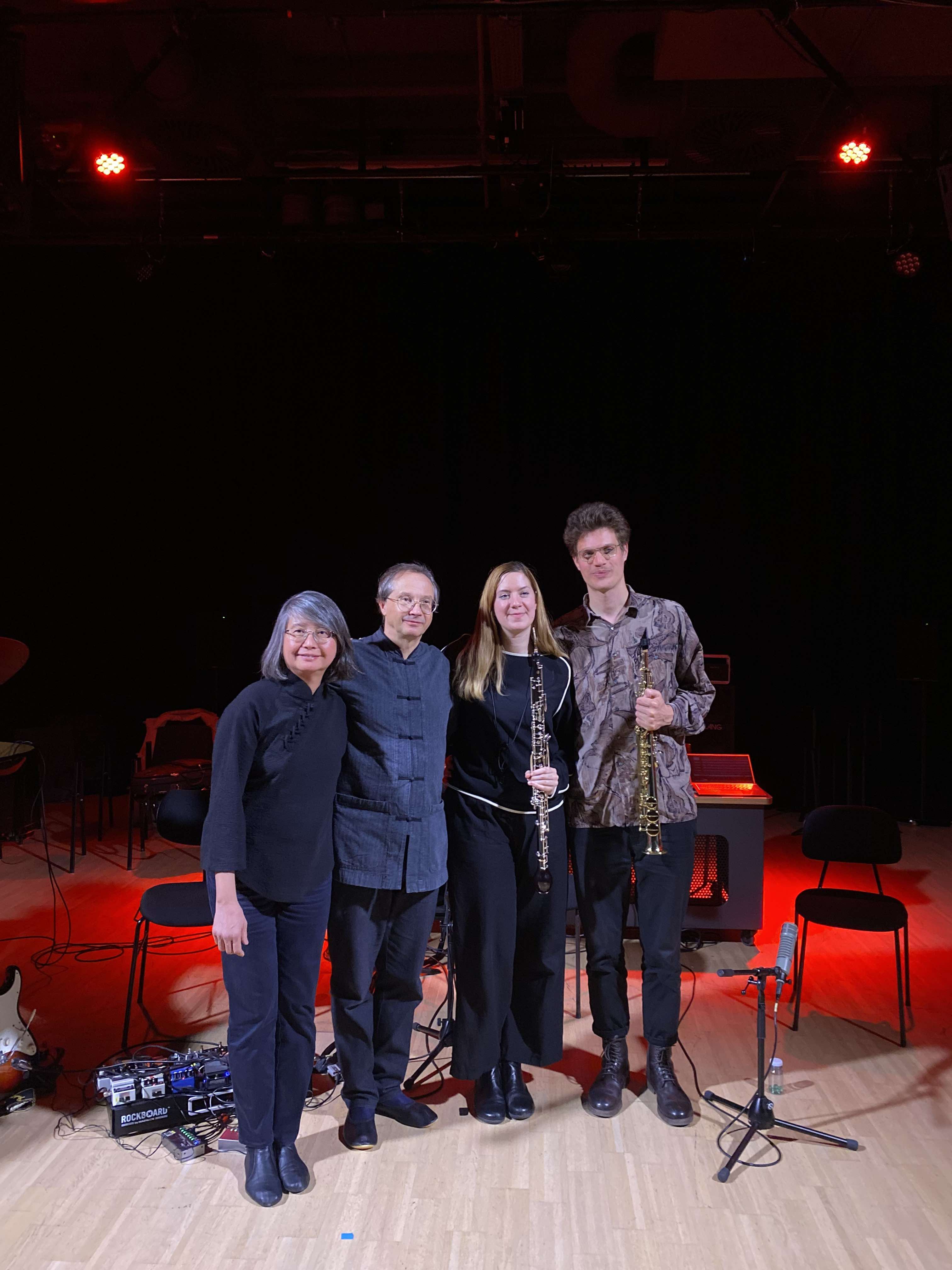
In 2021, I encountered the phenomenon of liminal space, which was
later constructed in my interdisciplinary works and I continued the
research ever since.
Liminal spaces are thresholds or abandoned residential buildings,
areas, corridors, hallways, underground pathways, shopping malls,
office buildings, etc.
Their initial purpose is to serve as a space crowded with people.
The act of abandonment loses their initial desire.
The individuals who visited such abandoned areas for the first time
reported emotional and memory responses to the spaces themselves.
These responses are related to two terms.
The first is 'Anemoia' which indicates nostalgia or excitement of a
time you have never known. The second 'Kenopsia' describes a
particular psychophysiological response of an individual who
interacted with the liminal space and experienced its atmosphere.
We could say that liminal spaces enable us to experience these
phenomena. Liminal as a cross-disciplinary term is used widely
within anthropology and folklore (e.g. initiation rituals), religion
and spirituality (e.g. Ascension Day, reincarnation, etc.) and
psychology (e.g. a process of transitioning across boundaries of
reality and certain types of dissociation).
For instance, I took a closer look at the theory of Arnold van
Gennep, who invented the term ‘Liminality’ at the beginning of the
20th century.
The direct relation to the Latin word Līmen is comprehensive and
indicates the threshold and passageway at the same time. Fascinated
by the term, sense of fluidity and the anthropological theory behind
it, I am inspired to continue writing a cycle of works titled Līmen.
The concert sound installation LĪMEN VIII presents the 10th work
from the cycle itself. To explain it efficiently we need to
understand that:
Preliminality’ includes metaphorical deviation of the present state
and forms a minimalistic and repetitive sonic environment throughout
the immersive sound spatialization. The concert installation intends
to present the first mutation of the sonic material that initially
reveals the sound of extensive improvisations with an
electroacoustic guitar that gradually evolves and transitions to
‘Liminality.’ The ‘Liminality’ itself has a sense of sequential
development. The identity changes and transitions through a
'destructive' progression of the viable sounds of micro-processes
(i.e. interferences and beatings with microtonal changes). Moreover,
the sonic environment of the ‘Liminality’ seems organically fluid
and transitions into the third stage of the Līmen VIII itself.
The third stage ‘Postliminality’ presents a fine spectral
interpolation and spectral mutation between the spatialization and
the e-bowed sounds. Overall it feels somehow static (i.e. from the
harmony, sound and macro form point of view). However, the
spatialization of the sound allows it to come to life and to arouse
a new sonic identity as the transition forms its purpose and
existence.
The project is funded by the Ministry of Culture Republic of
Slovenia
Maria Nikolic - Oboe
is a Hungarian-Serbian oboist and photographer, currently residing
in The Hague, Netherlands.
A pivotal moment in Maria's journey was her fortuitous encounter
with acclaimed oboist Maurice Bourgue at the age of 19. This marked
the beginning of her transformative journey, leading her to
establish her residence in France and become his student in years to
follow. During her time in France, she performed with several
renowned French orchestras, further enhancing her musical path. In
2019, Maria relocated to the Netherlands, where she successfully
completed her Master's program at the Royal Conservatory in The
Hague, under the expert guidance of Karel Schoofs and Alexei
Ogrintchouk. While studying there, she also started with learning
the baroque oboe with Frank de Bruine and this helped regain more
organic and sustainable approach to oboe playing. Following her
graduation, Maria integrated herself into the Dutch cultural scene,
becoming a regular performer with Dutch orchestras and early music
ensembles, showcasing her dedication and talent. During her career
she was academist of Vienner Philharmoniker, participated in
Bayreuth Festpiel, performed with Brussels Philharmonic, Belgrade
Philharmonic, Rotterdam Philharmonic etc Maria speaks fluently
English, French, basic German and basic Dutch.
Se-Lien Chuang
composer, pianist and media artist, 1965 born in Taiwan, since
1991 residence in Austria. The artistic and compositional emphases
range from contemporary instrumental composition/improvisation,
computer music to audiovisual interactivity. International
productions, research stays and lectures as well as numerous
representations of compositions in Europe, Asia, North- and South
America: ICMC, ISEA, NIME, NYCEMF, SMC, TENOR, Audio Mostly, SICMF
Seoul, IAMAS Japan, etc..
2016-2019 lecturer at Computer Music Studio, Institute of
Composition, Conducting and Computer Music at the Anton Bruckner
Private University for computer notation and contemporary playing
techniques. Since 1996 jointly with Andreas Weixler running Atelier
Avant Austria, with key aspects in development of audiovisual
interactive systems and audio/visual realtime/non-realtime
processing, computer music and algorithmic composition.
http://avant.mur.at
Andreas Weixler
Born in 1963 and home grown in Graz, Austria as guitarist and
composer with a penchant for atonality, odd beats and electronics.
He studied composition with Andrzej Dobrowolski and Younghi
Pagh-Paan at the KUG in Graz and graduated with Beat Furrer.
ART - artistic activities
Andreas Weixler currently specializes in contemporary composition
and improvisation with multi-channel live electronics and high
quality net performance.
As a performer, he plays electric guitar in a contemporary style
with real-time electronics in Austria, Japan, Australia, France,
Croatia, Slovenia, Denmark, Norway, Ohio, New York and recently
online.
He has presented more than 200 compositions and media works which
have received their world premieres at international festivals and
selection for conferences - ICMC, SMC, ISEA, NIME, TENOR, NYCEMF and
others in Europe, Asia, North- and South-America. Together with
Se-Lien Chuang he runs the Atelier Avant Austria since 1996 with a
focus on the development of audiovisual interactive systems and
audiovisual real-time/non-real-time processing, computer music and
algorithmic composition.
In 2018, the ICMA - International Computer Music Association awarded
Andreas Weixler and Se-Lien Chuang the best European performance for
their audiovisual interactive work.
LEC - teaching activities
He teaches computer music as an associate university professor and
director of the Computer Music Studio at the Anton Bruckner Private
University and as a lecturere at Interface Culture in Linz and
senior lecturer at the University of Music and Performing Arts
Vienna. Andreas held 60 international workshops and lectures in the
field of audiovisual interaction, virtuoso chances, algorithmic
composition, realtime / non-realtime, iScore, Max, contemporary
composition in Japan, Taiwan, South Korea, China, Hong Kong,
Singapore, USA, Canada, Australia, Austria, Germany, Swiss, Sweden,
England/UK, Northern Ireland/UK.
http://avant.mur.at
tech rider


 © Jorieke de Vet
© Jorieke de Vet

 © Maria_Nikolic
© Maria_Nikolic
